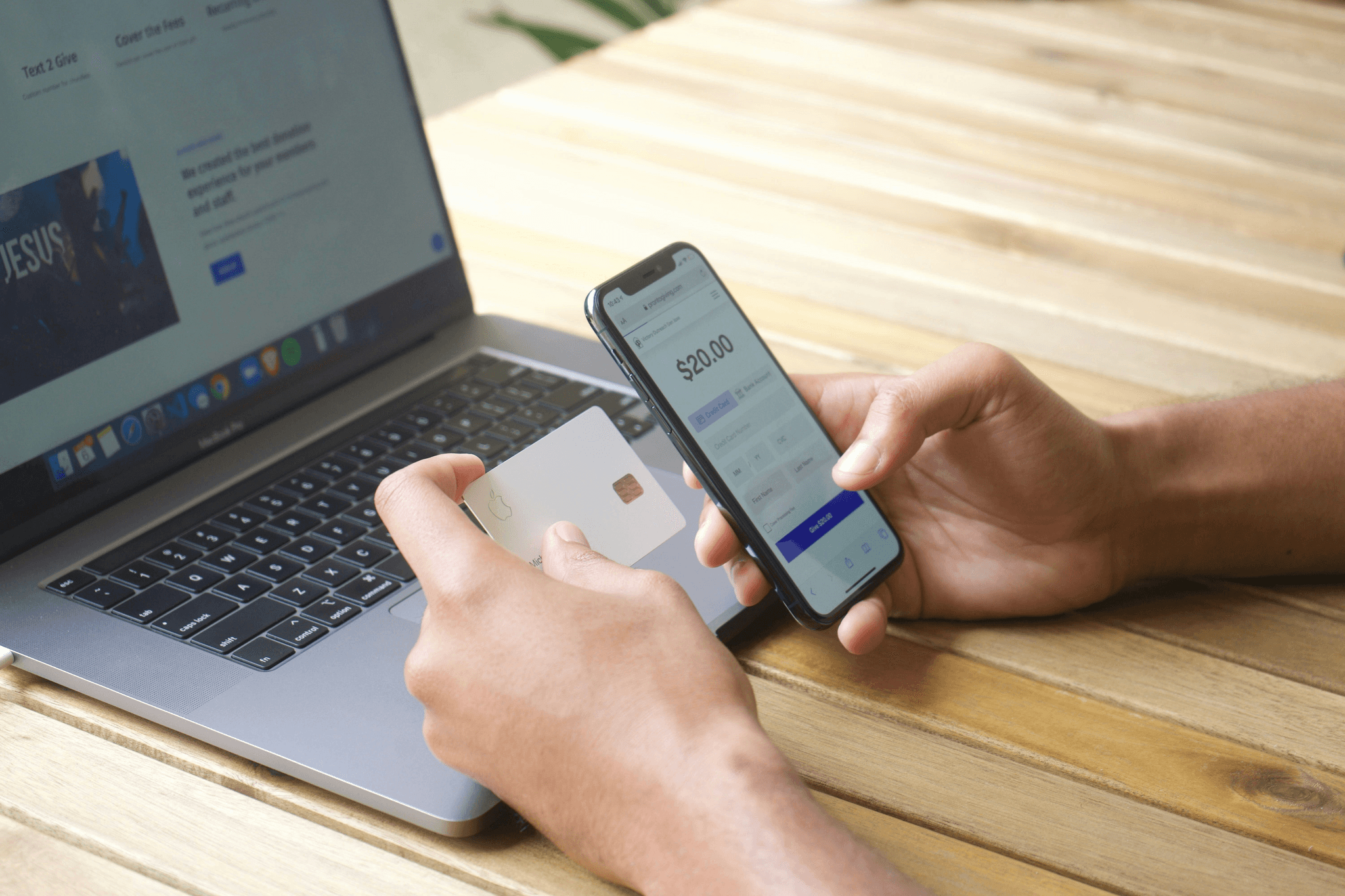Introduction
Navigating the world of international purchasing can feel like a thrilling adventure, especially when you decide to buy from China. The allure of unique products and competitive pricing is hard to resist, but the excitement can quickly turn into anxiety if you're not careful. To truly enjoy this experience without falling victim to scams, it's essential to arm yourself with knowledge and strategies for safe purchasing.
The Thrill of Buying from China
Buying from China offers a treasure trove of opportunities that many savvy shoppers find irresistible. From innovative gadgets to exquisite textiles, the variety is staggering and often comes at a fraction of local prices. However, the thrill can be overshadowed by concerns about quality and reliability—this is where knowing how to buy from China without getting scammed becomes crucial.
Avoiding the Dreaded Scam
The fear of encountering scams looms large in the minds of many potential buyers as they explore Chinese marketplaces. Common pitfalls include counterfeit products, unfulfilled orders, and ghost suppliers who vanish after payment is made. By understanding these risks and actively seeking ways to verify Chinese companies, you can significantly reduce your chances of becoming a victim.
Essential Steps for Safe Purchasing
To ensure that your buying experience remains positive, there are several essential steps you should take before making any purchases. Start by confirming the supplier's credentials; this includes asking about their business licenses and certifications as well as checking online reviews for authenticity. Additionally, familiarize yourself with secure payment options that protect your investment while also knowing where you can report scams and find blacklisted suppliers if things go awry.
Understanding the Risks of Importing

When you decide to buy from China without getting scammed, it's essential to grasp the inherent risks involved in international trade. The allure of low prices and vast selections can be tempting, but these come with potential pitfalls that can leave you frustrated or financially drained. By understanding the common scams and recognizing why trust is crucial, you can navigate this complex landscape more safely.
Common Scams You Might Encounter
The world of importing is rife with scams that can catch even seasoned buyers off guard. From counterfeit products to suppliers who vanish after receiving payment, the dangers are real and varied. Some scammers may pose as legitimate businesses, making it vital to focus on verifying Chinese companies before sealing any deals.
Why Trust is Crucial
Trust plays a pivotal role when you're looking to confirm the supplier's credentials in a foreign market like China. Without a solid foundation of trust, your transactions are at risk, potentially leading to financial losses or receiving subpar goods. Building relationships based on verified information not only enhances safety but also fosters smoother transactions.
The Role of International Trade Laws
International trade laws serve as a framework designed to protect both buyers and sellers across borders; however, they can be complex and vary significantly by region. Understanding these laws is key for anyone seeking to buy from China without getting scammed because they dictate what recourse you have if things go awry. Familiarizing yourself with these regulations will help you make informed decisions while ensuring that your rights are protected throughout the purchasing process.
Verifying Chinese Companies

The vast online marketplace can be overwhelming, but with the right approach, you can distinguish reputable suppliers from potential fraudsters. Taking the time to verify company backgrounds not only builds trust but also ensures your hard-earned cash is in safe hands.
Researching Company Backgrounds
Researching company backgrounds should be your first line of defense when looking to buy from China without getting scammed. Start by checking their official website for information about their history, product offerings, and contact details. Additionally, platforms like Alibaba and Global Sources often provide insights into a company's reputation through ratings and customer feedback—don't overlook these invaluable resources!
Another useful tactic is to look up the company's registration details through local business directories or government databases in China. This will give you more context about their legitimacy and operational scale. Remember: if a company has been around for years with glowing reviews, that's usually a good sign; if they seem brand new with little information available, proceed with caution.
Tools for Supplier Verification
In this digital age, utilizing tools for supplier verification has never been easier or more essential when confirming the credentials of potential partners in China. Websites like Dun & Bradstreet offer comprehensive reports on businesses worldwide that include financial health indicators and credit scores—perfect for assessing risk before making any commitments! Additionally, consider using platforms such as VerifyChinaSupplier.com which specializes in validating Chinese suppliers.
Social media channels can also serve as valuable verification tools; check out LinkedIn profiles of key personnel within the company to gauge professionalism and industry presence. Engaging directly with past clients through forums or review sites can provide firsthand accounts of experiences with specific suppliers too! Always remember: thorough verification today means fewer regrets tomorrow.
Red Flags to Watch For
While many companies are legitimate players in the market, there are some red flags that signal potential scams when verifying Chinese companies. If a supplier's communication feels overly vague or their responses are consistently delayed without reasonable explanations—this could indicate trouble ahead! Similarly, if they pressure you into making quick decisions or avoid providing necessary documentation like licenses or certifications, it's time to raise an eyebrow.
Another warning sign is inconsistent pricing; if one supplier quotes significantly lower prices than others without clear justification (like bulk orders), tread carefully! Lastly, be wary of companies that lack an online presence or have minimal reviews; reputable businesses typically have some form of digital footprint where customers can share experiences—and absence here could mean they're hiding something.
Confirm the Supplier's Credentials

When you decide to buy from China without getting scammed, confirming your supplier's credentials is a crucial step in the process. This involves more than just a casual glance at their website; it requires digging deep into their legitimacy and reliability. By taking the time to verify Chinese companies thoroughly, you can significantly reduce the chances of falling victim to fraud.
Asking the Right Questions
One of the best ways to confirm the supplier's credentials is by asking pointed questions that reveal their business practices and reliability. Inquire about their experience in your specific industry, production capabilities, and any previous partnerships with international buyers. The answers will not only provide insight into their operations but also help establish a level of trust—something essential when you’re looking to buy from China without getting scammed.
Requesting Business Licenses and Certifications
Another vital step in confirming your supplier's credentials is requesting relevant business licenses and certifications. Legitimate suppliers should have no problem providing documentation that proves they are registered entities capable of conducting international trade. Make sure to verify these documents against official records; this will further solidify your confidence in your potential partner.
Checking Online Reviews and References
Lastly, don’t underestimate the power of online reviews and references when verifying Chinese companies. Scour platforms like Alibaba or global trade forums for feedback from previous customers; this can give you invaluable insights into other buyers' experiences with the supplier. If possible, ask for references directly from the supplier—legitimate businesses will be eager to share positive testimonials that validate their credibility.
Utilizing Secure Payment Options

When it comes to buying from China without getting scammed, the method of payment you choose can make all the difference. Secure payment options not only protect your financial information but also provide a safety net should something go awry in your transaction. By being mindful of how you pay, you can significantly reduce the risk associated with international purchases.
Best Payment Methods for Safety
To ensure a safe purchasing experience when verifying Chinese companies, it's essential to opt for payment methods that offer buyer protection. Credit cards are often a good choice since they typically have built-in fraud protection features and allow you to dispute charges if something goes wrong. Additionally, platforms like PayPal and AliPay provide extra layers of security that can help safeguard your funds while confirming the supplier's credentials.
Avoiding Wire Transfers and Cash Payments
While wire transfers and cash payments might seem convenient, they are often a one-way ticket to disaster when trying to buy from China without getting scammed. Once money is sent via these methods, it's nearly impossible to recover it if the supplier turns out to be fraudulent or untrustworthy. By steering clear of these risky payment options, you can keep your hard-earned money safe while engaging in international trade.
How to Use Escrow Services Effectively
Escrow services act as a middleman between buyers and sellers, holding funds until both parties fulfill their obligations—making them an excellent tool for those looking to verify Chinese companies before completing transactions. When using an escrow service, always ensure that it’s reputable and well-reviewed; this will give you peace of mind knowing that your money is secure until you've confirmed the supplier's credentials satisfactorily. Remember: utilizing secure payment options like escrow not only protects your investment but also empowers you against scams.
Where Can I Report Scams and Find Blacklisted Suppliers

In the world of international trade, knowing where to report scams and find blacklisted suppliers is crucial for anyone looking to buy from China without getting scammed. The landscape can be treacherous, filled with potential pitfalls, but with the right resources, you can navigate it safely. This section will guide you through official channels for reporting fraud, online resources and forums for community support, and how to collaborate with organizations like AC&E for legal assistance.
Official Channels for Reporting Fraud
When you suspect a scam while trying to verify Chinese companies, it’s essential to report it through official channels. Organizations such as the Federal Trade Commission (FTC) or your local consumer protection agency are equipped to handle fraud reports effectively. By reporting scams promptly, you not only protect yourself but also help others avoid falling victim to similar schemes.
Additionally, many countries have international trade offices that can assist in reporting fraudulent suppliers. These offices often maintain databases of blacklisted suppliers and can offer guidance on how to confirm the supplier's credentials before making any transactions. Remember, taking action against fraud helps strengthen the market and encourages safer practices in global trade.
Utilizing Online Resources and Forums
The internet is a treasure trove of information when it comes to buying from China without getting scammed. Various online forums allow users to share their experiences with specific suppliers—both good and bad—making them invaluable resources for verifying Chinese companies. Websites like Alibaba’s Trade Assurance program or Trustpilot can provide insights into a supplier's reputation based on user reviews.
Furthermore, social media platforms often host groups dedicated to international trading where members discuss their experiences related to scams and recommend reliable suppliers. Engaging in these communities not only helps you gather information but also allows you to ask questions about confirming supplier credentials directly from experienced members who have been in your shoes before.
Collaborating with AC&E for Legal Assistance
If you've encountered a scam or are unsure about a supplier's legitimacy while trying to buy from China without getting scammed, collaborating with organizations like AC&E (Advisory Council & Enforcement) can be beneficial. They provide legal assistance tailored specifically for issues related to international trade frauds and disputes over unreliable suppliers. Their expertise can guide you through the process of resolving issues effectively.
Moreover, AC&E often has access to resources that list blacklisted suppliers based on reported scams which could save you time during your verification process of Chinese companies. By working alongside professionals who understand the intricacies of international laws and regulations regarding trade frauds, you'll empower yourself against potential scams while ensuring secure payment options are utilized throughout your purchasing journey.
Conclusion

Navigating the world of international purchasing can feel like stepping into a thrilling yet treacherous adventure. To **buy from China without getting scammed**, it’s crucial to arm yourself with knowledge and resources that help ensure your transactions are safe and secure. By following the steps outlined in this guide, you can confidently engage with suppliers while minimizing risks.
Key Takeaways for Safe Purchasing
First and foremost, always prioritize **verifying Chinese companies** before making any commitments. Conduct thorough research, ask pertinent questions, and confirm the supplier's credentials to build a foundation of trust. Remember, utilizing secure payment options is vital; selecting methods that provide protection against fraud can save you from potential headaches down the road.
Resources for Verifying Suppliers
There are numerous online platforms and resources available to assist you in verifying suppliers effectively. Websites like Alibaba and Global Sources often include ratings and reviews that can provide insight into a company’s reputation. Additionally, consider reaching out to official trade organizations or using verification services dedicated to helping buyers confirm the supplier's credentials before committing financially.
Empower Yourself Against Scams
Knowledge is your best defense when it comes to avoiding scams in international trade. Familiarize yourself with common scams, know where you can report scams and find blacklisted suppliers if things go awry, and stay updated on international trade laws that protect consumers like you. By taking these proactive steps, you'll be well-equipped to **buy from China without getting scammed**, ensuring a smoother purchasing experience.
